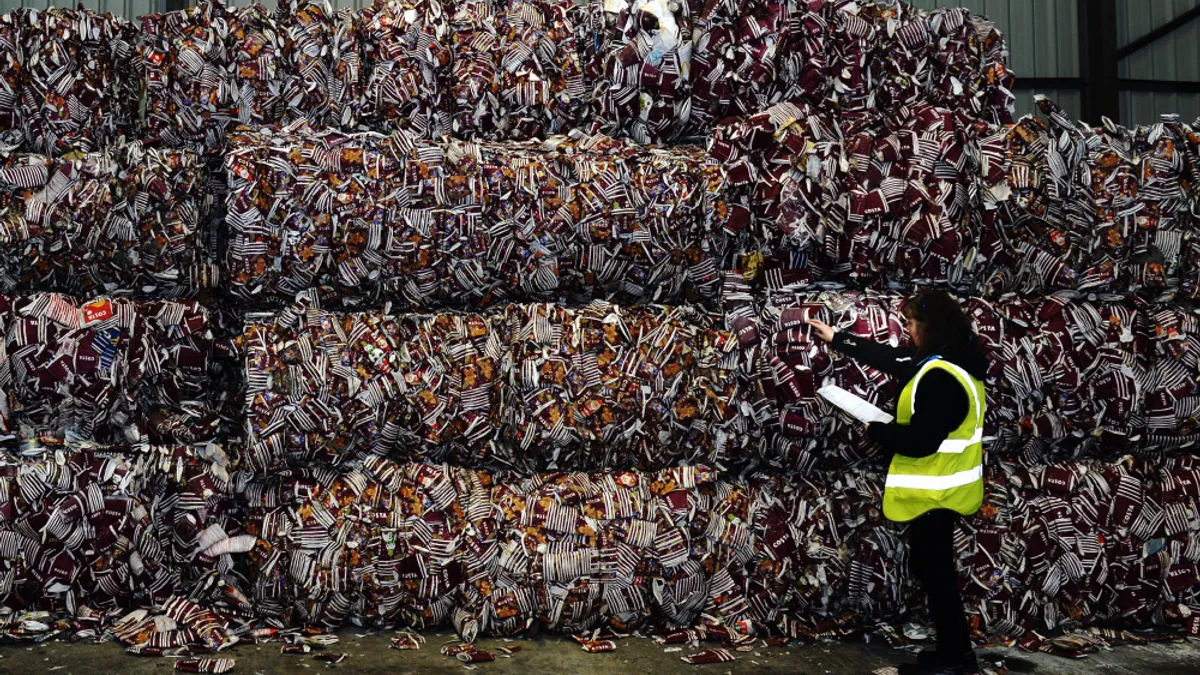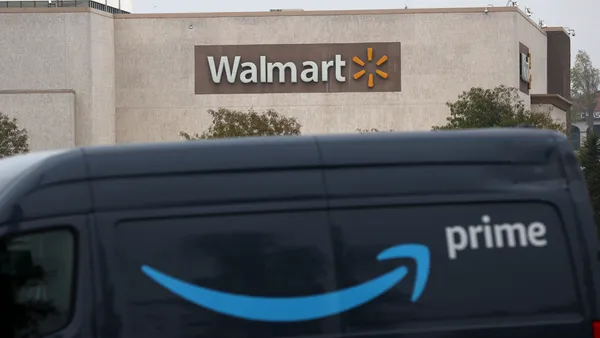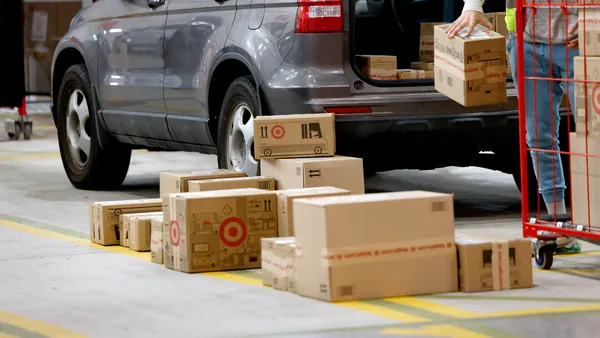Dive Brief:
- Seventy percent of supply chain leaders are planning to invest in the circular economy in the next 18 months, according to a Gartner survey of 1,374 function leaders across industries including healthcare, logistics and retail.
- Gartner predicts circular economies, powered by waste-free operations and recycling or reuse of spent products, could replace traditional linear economies within the decade. "Organizations are under pressure to reduce the amount of waste they’re producing," Steven Steutermann, managing vice president in Gartner's supply chain practice, said in a statement. "The supply chain will play a key role in this process."
- Firms are investing in technology to achieve circularity across optimized delivery (46%), customer engagement (45%), manufacturing and remanufacturing (43%), and planning (43%), according to the survey. Gartner analysts believe a lack of attention to reverse logistics and integrating digital strategies across the supply chain could hamper progress — just 27% of respondents are using technology to improve reverse logistics.
Dive Insight:
Gartner defines the circular economy as a model that focuses on the reuse of materials to minimize waste and natural resource consumption. Due to growing consumer and governmental pressures to reduce the impact of industrial operations on the environment, more companies are embracing strategies from improving their procurement to decarbonizing their supply chains entirely.
"The manufacturing industry faces increasing cost pressures and heightened risk exposure from commodity price volatility, customer preferences, regulatory environments, and geopolitical conditions," Rafael Go, senior research analyst at Navigant Research, said in a statement about the firm's latest circular manufacturing report. "While adopting a circular economy model can increase manufacturers' exposure to risks, it presents an opportunity for positive economic growth combined with positive environmental social impact."
One source of this risk is the fact that the "circular economy creates an ecosystem of materials," Sarah Watt, senior director analyst with the Gartner Supply Chain practice said in a press release. "Those ecosystems are complex and include many interdependencies and feedback loops."
To successfully transition to a circular model and manage this increased complexity, Navigant recommends manufacturing companies map out their current resource consumption and waste to identify areas of risk or regulatory exposure.
Digital technologies that improve visibility and decision making about raw materials and service channels could be key to enabling this process, according to Watt. The top four tools supply chain leaders plan to use to achieve this goal, according to Gartner's report, are analytics, 3D printing, the Internet of Things (IoT) and machine learning (ML).
While 35% of respondents agree leveraging digital tools and strategies will be key to creating a circular economy "very few are leveraging the technology for this purpose yet," Watt said. Only 12% of those surveyed said they are linking their supply chain's digital strategy with their circular ambitions.
Furthermore, the growing challenge of reverse logistics is currently getting less attention in digital transformation and circularity efforts, Watt said.
"The difference in emphasis between delivery and reverse logistics is intriguing," she said. "On the one hand, we observe organizations using technology such as analytics and alternative vehicles to optimize their routes and reduce emissions ... [but] reclaiming materials at the end of life requires reverse logistics for pickup and return to either the organization or a third party."
Optimizing delivery can improve sustainability, but removing waste from the returns and material recycling processes will be key to moving the needle toward true circularity, she said.
Ikea is exploring solutions to reduce its reverse logistics waste through a partnership with Optoro, a returns optimization company. The pilot phase encompasses 10 Ikea distribution centers, 50 retail stores and its customer support center in the U.S. which will use Optoro's machine-learning platform and warehouse technology to more efficiently route returned items away from landfills to facilities where they can be prepped for resale or recycling.
While results from Ikea's pilot have yet to be released, Optoro claims it can "divert over 99% of returned product to landfill, eliminate waste by up to 70% and reduce emissions by 51%," according to a sustainability whitepaper published on the company's website.














